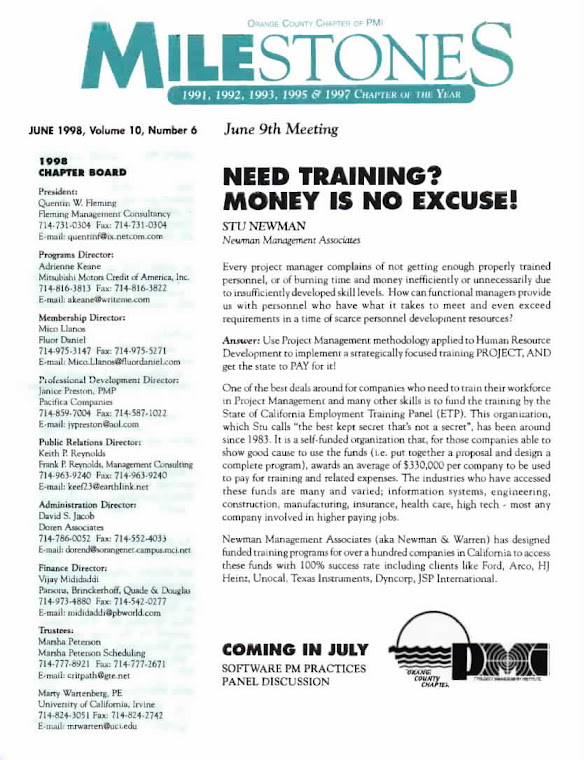The Art of Getting Things Done (By Ulrich Boser)
The fight took place over three decades ago, but David Allen still remembers it well. Training for a black belt in karate, he battled four attackers at once, each coming at him with a flurry of kicks and punches. Winning the match, says Allen, was more about concentration than strength: keeping track of all four men, while fighting each one individually. "Your focus needs to expand to the big picture," Allen says. "But you need to dispatch one person at a time. ... You have to be effective, or you're dead."
Allen, now 61, won the fight-and realized that the mental strategies required for battling a foursome could also help people increase their productivity. Over the years, he developed practices that promise to give office workers Bruce Lee-like effectiveness. "It's a systematic way of managing yourself," he says, "that has you spend as little psychic energy on your work as possible and focuses your attention on what's in front of you."
Devotees. Allen's system has been a knockout. Sales of his book Getting Things Done: The Art of Stress-Free Productivity have significantly increased each year since its 2001 release, and his methods-called GTD by devotees-have inspired everything from leatherbound notebooks to new features for Microsoft's Outlook E-mail software. While most clients of Allen's Ojai, Calif., consulting firm are blue-chip companies-and his system requires little more than a pen and paper-tech geeks might be his most devoted followers. Dozens of websites scrutinize his every word.
Born in Jonesboro, La., Allen didn't aspire to become a productivity guru. He dropped out of a Ph.D. program in intellectual history and jumped from job to job. At 35, "I realized that I had had 35 different jobs," he says, laughing. "At that point, my career choice was either consultant or flake."
He opted for consultant. Allen began developing his productivity system, drawing in part on his extensive coaching of senior managers. "If you watch successful executives function, you'll see rapid decisions," he says.
Allen believes in getting things done by deciding what needs to get done, especially when faced with a constant barrage of memos and meetings, E-mails and voicemails. "The real stress of knowledgework is deciding what the information means to you and what you are going to do about it," he says.
The stress of working on ill-defined tasks is acute, he adds, because people never seem to forget little details that wake them up at 3 a.m., but they can't seem to remember all their assignments. Overwhelmed with thinking about what they should be doing, they can't perform the task at hand. In other words, people can't fight the individual attacker because they're too focused on the whereabouts of the other three assailants.
Allen's solution: Write down all your tasks, from the most mundane (check time sheet) to the most hopeful (retire by 50). Then process all the plans and projects into actionable steps. So, your to-do list won't say "think about marketing proposal" but "make reservations for lunch with marketing director."
All documents and projects go into an in box, and less pressing tasks are punted to a "someday/maybe" file. Still, the to-do list can get very long-Allen's own includes over 150 items-and he recommends spending a few hours each Friday reordering it. Then spend the rest of the week "cranking widgets."
While GTD requires dedication (and fastidiousness), many say it boosts their productivity by more than 30 percent. "Without the GTD system, I wouldn't even know what to do next," says Peter Gallant, CEO of the Canadian biotech firm Pathogen Detection Systems. Gallant has his 6-year-old son use parts of it.
You can cherry-pick Allen's practices. For instance, if you can perform a task in two minutes or less, he says, do it immediately. But for the very overwhelmed, only the full system will do. It can take up to two years to master it-"to get into a zone," Allen says, "where most of the time you're just interacting with your work, not thinking about it."




No comments:
Post a Comment